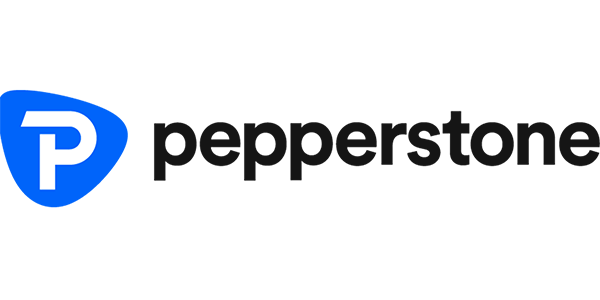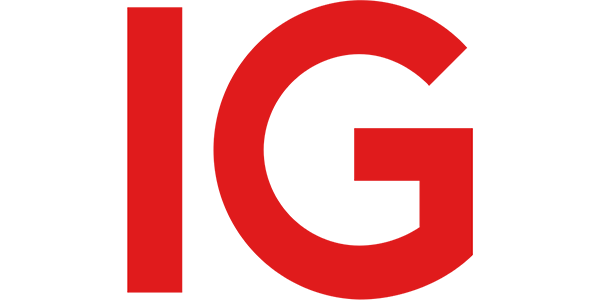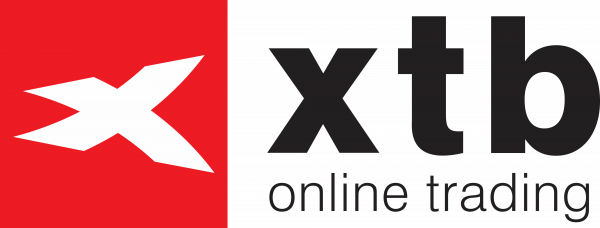- Top CFD Brokers for Commodities Trading Compared
- Best Commodity Brokers for CFD Trading in 2025
- What Are Commodity CFDs and Why Trade Them?
- How to Choose the Best Commodity Trading Platform
- Commodities Available for CFD Trading
- How to Start Trading Commodities with CFDs
- Pros and Cons of Trading Commodities with CFDs
- FAQ
Top CFD Brokers for Commodities Trading Compared
When choosing a broker for trading commodities CFDs, traders need to consider several factors, such as fees, platforms, commodities available, and customer support. Below is a detailed comparison of some of the top CFD brokers for commodity trading in 2025.
| Commision | Instruments | Min Dep | Leverage | Platforms | ||
|---|---|---|---|---|---|---|
| No commission fees, cost through spreads | Forex Crypto Metals Indices Commodities | $10 | Up to 1:2000 | MT4 MT5 Web Terminal Mobile App | ||
| $0-$3 per lot | Forex Indices Commodities Stocks Cryptocurrencies | $200 | Up to 1:500 | MT4 MT5 cTrader | ||
| $0 (cost via spreads) | Forex Indices Commodities Stocks Crypto | $250 | Up to 1:200 | IG Platform MT4 Mobile App | ||
| $0 | Forex Indices Commodities Stocks Cryptocurrencies | $100 | Up to 1:30 | Proprietary platform Web Mobile | ||
| $0 | Forex Indices Commodities Stocks Cryptocurrencies | $100 | Up to 1:400 | MT4 MT5 AvaTradeGO WebTrader Mobile apps | ||
| $3-$6 per lot | Forex Indices Commodities Stocks Futures | $100 | Up to 1:500 | MT4 MT5 cTrader TradingView Iress | ||
| $0 (cost via spreads) | Forex Indices Commodities Stocks Crypto | $0 | Up to 1:500 | xStation 5 MT4 Mobile App |
Best Commodity Brokers for CFD Trading in 2025
Exness
Exness
Exness is renowned for offering competitive spreads and a wide range of trading tools, making it a top choice for commodity traders. The broker offers CFDs on various commodities, including energy products, metals, and agricultural goods. Exness also provides flexibility in trading execution, allowing traders to manage their strategies effectively.
Pros and Cons
Pros:
- Wide Range of Commodities: Exness offers CFDs on a variety of commodities including precious metals, oil, and agricultural products.
- Regulated Broker: Exness is regulated by multiple financial authorities globally, ensuring security and reliability for traders.
- Superior Trading Platforms: Offers MetaTrader 4 (MT4) and MetaTrader 5 (MT5), which are widely respected for their advanced charting and automation capabilities.
- Low Spreads: Known for offering some of the lowest spreads, especially on metals like gold and silver.
- Fast Withdrawals: Exness stands out with its instant withdrawal feature, making it easy for traders to access their funds quickly.
Cons:
- Complex Fee Structure: Some account types have higher commissions and fees, which might be a drawback for traders with smaller capital.
- Limited Educational Resources: While Exness offers tools and features for advanced traders, it lacks extensive educational materials for beginners.

Pepperstone
Pepperstone
Pepperstone is known for its advanced trading technology and low-cost structure, which makes it a strong contender for commodity CFD trading. The broker provides a comprehensive set of tools for technical analysis and is particularly favorable for active traders who prefer to trade commodities like oil, gas, and metals.
Pros and Cons
Pros:
- Low Spreads: Pepperstone offers very competitive spreads on popular commodities like crude oil and gold.
- High Execution Speed: Known for ultra-fast order execution, which is crucial when trading volatile commodities.
- Advanced Trading Tools: Provides powerful tools like AutoChartist and TradingView for technical analysis.
- Algorithmic Trading: Great for traders who rely on algorithmic strategies to trade commodities.
Cons:
- Limited Educational Support: While advanced tools are available, there is limited content for beginner traders to learn about commodity CFD trading.
- Restricted Payment Options in Some Regions: Certain payment methods are not available in all countries.

IG
IG
IG is one of the oldest and most trusted brokers in the CFD space, offering an extensive list of commodities to trade. The broker is known for its reliability, comprehensive research tools, and tight spreads on various commodity CFDs.
Pros and Cons
Pros:
- Comprehensive Range of Commodities: IG provides CFDs on a variety of commodities including metals, energy, and agriculture.
- Advanced Charting Tools: Offers some of the most advanced charting tools and technical analysis resources.
- Regulated and Trusted: IG is well-regulated by authorities such as the FCA in the UK, providing a high level of trust and security for traders.
- Educational Resources: Extensive resources for new traders, including webinars, courses, and market analysis.
Cons:
- Higher Fees on Some Accounts: Some types of accounts at IG can have higher fees, especially for lower-volume traders.
- Limited Customer Support Availability: Customer support is generally responsive but may not be available 24/7 in all regions.

Plus500
Plus500
Plus500 offers a simple and easy-to-use trading platform that is perfect for traders who are new to CFDs or those who prefer a straightforward approach. The broker offers a variety of commodities, making it an attractive option for those interested in CFDs.
Pros and Cons
Pros:
- User-Friendly Platform: The platform is intuitive and easy to use, which is ideal for beginner traders.
- No Commission Trading: Plus500 offers commission-free trading on CFDs, making it more affordable for traders.
- Low Minimum Deposit: Suitable for new traders who wish to start trading with smaller amounts.
Cons:
- Limited Range of Commodities: Plus500 does not offer as many commodities as some of the larger brokers like IG or Exness.
- Limited Advanced Tools: There are fewer advanced tools for experienced traders compared to other brokers.

AvaTrade
AvaTrade
AvaTrade is another well-established broker that provides access to a variety of commodity CFDs. Known for its regulation and user-friendly platforms, AvaTrade is a popular choice for both beginners and experienced traders.
Pros and Cons
Pros:
- Diverse Range of Commodities: AvaTrade offers CFDs on commodities such as gold, oil, and agricultural products.
- Multiple Platforms: AvaTrade provides a wide variety of trading platforms, including its own proprietary platform and MetaTrader 4.
- Educational Resources: Great for beginners, AvaTrade offers a range of educational resources to help traders understand the fundamentals of commodity CFD trading.
Cons:
- Higher Spread Costs: While the broker offers a wide range of assets, some of the spreads, particularly on commodities like natural gas, may be higher compared to other brokers.
- Withdrawal Fees: AvaTrade charges fees on certain withdrawal methods, which can add to the overall trading costs.

FP Markets
FP Markets
FP Markets is a well-regarded broker known for its competitive pricing and broad access to commodities. It offers a wide range of CFD commodities and is a great choice for traders looking for variety and flexibility.
Pros and Cons
Pros:
- Tight Spreads: Known for offering tight spreads, especially on major commodities like crude oil and gold.
- Variety of Account Types: Offers different account types, including raw spread and pro accounts, which are ideal for both retail and professional traders.
- MetaTrader 4 and 5 Support: Well-known platforms supported for optimal trading flexibility.
Cons:
- Limited Educational Content: FP Markets offers a great platform but lacks comprehensive educational materials for newer traders.
- Regional Restrictions: Not available in some regions, so it’s important to check if the broker operates in your country.

XTB
XTB
XTB is a broker that stands out for its wide range of commodity CFDs and excellent customer support. Known for its strong educational resources, XTB is ideal for traders who want to expand their knowledge while trading.
Pros and Cons
Pros:
- Wide Range of Commodities: XTB offers access to a broad range of commodities including metals, energies, and agricultural products.
- Top-Notch Customer Service: XTB is known for offering excellent customer support that is available 24/7.
- Comprehensive Educational Tools: Offers numerous tutorials, webinars, and trading guides for both beginners and advanced traders.
Cons:
- Higher Commissions for Smaller Accounts: Traders with lower account balances may find the commission structure more expensive.
- Limited Advanced Analytical Tools: For very advanced traders, XTB’s charting and analysis tools might not be as extensive as those offered by other brokers.

What Are Commodity CFDs and Why Trade Them?
Commodity CFDs (Contracts for Difference) are a powerful financial instrument that allows traders to speculate on the price movements of various commodities without owning the physical asset. This means traders can potentially profit from both rising and falling prices, making CFD trading a flexible and attractive option for those looking to enter the commodities market.
Unlike traditional commodity investments, which often require significant capital and storage logistics (e.g., buying and holding physical gold or barrels of crude oil), CFDs provide exposure to price fluctuations with a much lower capital requirement. Traders can take advantage of leverage, meaning they can control larger positions with a smaller initial investment. However, leverage also increases risk, making it crucial for traders to manage their exposure effectively.
Commodity CFDs are available for a wide range of assets, including precious metals, energy resources, and agricultural products. These markets are influenced by global economic trends, geopolitical events, supply chain disruptions, and weather conditions—factors that create continuous trading opportunities.
How to Choose the Best Commodity Trading Platform
Choosing the CFD brokers is a critical step for any trader looking to trade commodity CFDs successfully. Several factors should be carefully evaluated to ensure a smooth trading experience, competitive costs, and strong security measures.
Is the Broker Regulated?
Regulation is one of the most important factors when selecting a CFD broker. A well-regulated broker operates under strict financial guidelines, ensuring that traders’ funds are protected, and trading conditions are fair.
Top financial regulatory bodies include:
- FCA (Financial Conduct Authority, UK) – Known for its strict compliance standards and trader protection policies.
- ASIC (Australian Securities and Investments Commission) – Regulates Australian-based brokers with a focus on transparency and financial stability.
- CySEC (Cyprus Securities and Exchange Commission) – Oversees brokers operating under the European Union’s financial regulations.
Traders should always verify a broker’s regulatory status before opening an account. A regulated broker provides security, ensures ethical trading practices, and minimizes risks related to fraud or unfair pricing.
User-Friendly Trading Platform
The quality of a trading platform plays a key role in how efficiently traders can execute orders, analyze markets, and manage risks. A good platform should be:
- Intuitive and easy to navigate, even for beginners.
- Equipped with advanced charting tools to support technical analysis.
- Reliable and fast, ensuring minimal delays in order execution.
- Accessible on multiple devices, including desktops, tablets, and mobile phones.
Popular platforms like MetaTrader 4 (MT4) and MetaTrader 5 (MT5) are widely used in commodity CFD trading due to their comprehensive tools, automated trading features, and customizable indicators.
Range of Commodities Available
A diverse selection of commodities allows traders to explore different markets and hedge risks effectively. The best CFD brokers offer a variety of assets, including:
- Precious metals (gold, silver, platinum, palladium)
- Energy commodities (crude oil, natural gas, gasoline)
- Agricultural products (wheat, corn, soybeans, coffee, sugar)
A broader range of available commodities provides traders with more opportunities to diversify their strategies and mitigate risks associated with price fluctuations in a single sector.
Fees and Spreads
Trading costs can significantly impact profitability, making it crucial to choose a broker with competitive fees. When evaluating a broker’s pricing structure, consider:
- Spreads: The difference between the bid and ask price. Tighter spreads mean lower trading costs.
- Commission fees: Some brokers charge commissions on trades, while others only apply spreads.
- Swap rates: Overnight financing fees apply to positions held beyond the trading day.
- Deposit/withdrawal fees: Transparent payment policies ensure that traders can manage their funds efficiently.
Low trading costs are especially important for frequent traders who enter and exit positions multiple times per day.
Commodities Available for CFD Trading
Commodity CFD trading covers a wide spectrum of markets, allowing traders to capitalize on price movements in different industries.
Precious Metals
Precious metals are among the most popular assets in CFD trading. They are often viewed as safe-haven investments, meaning they tend to perform well during economic uncertainty.
- Gold (XAU/USD) – The most traded metal, often used as a hedge against inflation and currency devaluation.
- Silver (XAG/USD) – More volatile than gold, with strong industrial applications.
- Platinum and Palladium – Heavily used in the automotive industry and influenced by industrial demand.
Energy Commodities
Energy markets are known for their high volatility and strong correlation to geopolitical events, supply disruptions, and global demand.
- Crude Oil (WTI and Brent) – A key driver of global markets, influenced by OPEC decisions and production levels.
- Natural Gas – A highly volatile market affected by seasonal demand, weather conditions, and storage levels.
- Gasoline and Heating Oil – Derived from crude oil, these products are impacted by refining capacities and demand cycles.
Agricultural Commodities
Agricultural products play a crucial role in global trade and are highly sensitive to weather conditions, supply chain disruptions, and geopolitical factors.
- Wheat and Corn – Staple grains with prices affected by crop yields and export policies.
- Soybeans – A key component in livestock feed and biofuel production.
- Coffee and Cocoa – Prices depend on weather patterns in major producing countries like Brazil and Vietnam.
These markets provide diverse trading opportunities, particularly for those who can anticipate seasonal price movements and global supply shifts.
How to Start Trading Commodities with CFDs
Getting started with commodity CFD trading involves several steps. A disciplined approach and proper risk management are essential to long-term success.
Choose a CFD Broker
Select a regulated broker that offers access to commodity CFDs, competitive pricing, and a stable trading platform.
Open a Trading Account
Complete the registration process, submit required documents (proof of identity and address), and fund your account.
Select a Commodity
Analyze different commodities and choose one that aligns with your trading strategy and market outlook.
Conduct Market Analysis
Use technical indicators, fundamental news, and economic reports to anticipate price movements.
Place Trades and Manage Risks
- Enter buy (long) or sell (short) positions based on your analysis.
- Set stop-loss and take-profit levels to limit risk.
- Monitor global economic events that may affect commodity prices.
Review and Optimize Your Strategy
Regularly analyze your trading performance and adjust strategies based on market conditions.
Pros and Cons of Trading Commodities with CFDs
Commodity CFD trading has gained popularity due to its accessibility, flexibility, and potential for high returns. However, like any trading method, it comes with both advantages and risks. Understanding these factors can help traders make more informed decisions and develop strategies that align with their risk tolerance and financial goals.
Advantages
Trading commodities through CFDs has some real perks that work for both newbies and pros. You get tools to stretch your money further, skip the hassle of owning stuff, and play the market however it moves—all while picking from a big menu of options.
The big win is leverage. It lets you control a fat chunk of a commodity—like $50,000 worth of oil—with just $1,000 of your own cash if the ratio’s 1:50. That’s a shot at bigger profits without needing a huge pile of money upfront. But watch out—if the price swings the wrong way, your losses grow just as fast, so it’s not all smooth sailing.
You don’t have to deal with the real thing either. No storing gold in a safe or hauling wheat to a barn—CFDs cut out the mess. You’re just betting on price changes, so jumping in or out is quick and clean. Compare that to buying actual oil or silver: no storage fees, no shipping, just a click on your screen.
Plus, you can cash in whether prices climb or crash. Go long and buy if you think gold’s heading up, or go short and sell if oil’s about to tank—either way, you’ve got a play. Take a supply glut pushing oil prices down: short a CFD and pocket the drop. That kind of flexibility beats waiting for an uptick like in old-school trading, letting you roll with whatever the market throws.
Disadvantages
Trading commodity CFDs can pay off, but it’s not without traps. Leverage can burn you fast, prices jump around like crazy, and holding trades too long might cost you extra—knowing this stuff upfront keeps you from losing your shirt.
Leverage is a beast. Sure, it pumps up your wins, but if the market flips—like oil crashing after some big news—you could lose more than you put in, quick. A trader betting big on high leverage might see their cash vanish in minutes if prices tank. That’s why you need brakes like stop-loss orders and a clear head about what you can afford to lose.
Volatility’s another kicker—commodity prices don’t sit still. Oil spikes when OPEC talks, gold jumps if wars brew, and wheat flops if storms hit farms. It’s a goldmine when you guess right, but miss the mark without a plan, and those wild swings can wipe you out. Overnight fees pile on too—hold a gold CFD for weeks, and the broker’s cut might eat half your profit, so check those costs before you lock in long.
FAQ
What is the best CFD broker for commodity trading?
The best CFD broker for commodities depends on factors such as:
- Regulation and security (FCA, ASIC, CySEC regulation).
- Competitive spreads and fees to minimize trading costs.
- Available commodities (metals, energies, agricultural products).
- Platform quality (MetaTrader 4, MetaTrader 5, proprietary trading platforms).
Some well-known brokers offering strong commodity CFD trading conditions include IG, Pepperstone, and FP Markets.
- Major Pairs: EUR/USD, GBP/USD, USD/JPY
- Low Spread Criteria: Typically under 1 pip for high liquidity pairs.
For traders engaging in high-frequency trading, every fraction of a pip saved can significantly impact overall profitability. Choosing a broker with spreads below 1 pip is generally advantageous.
How do I find a reliable commodity broker?
What commodities can I trade with CFDs?
Are CFDs riskier than futures?
Which platform is best for trading commodities?
How do commodity brokers make money?
Is commodity trading suitable for beginners?
Final Thoughts on Choosing the Best CFD Broker for Commodities
Selecting the right CFD broker for commodity trading in 2025 requires careful evaluation of key factors such as regulation, fees, available commodities, and trading platform quality. A well-chosen broker can provide traders with access to diverse markets, competitive pricing, and reliable trading tools, ultimately improving their overall trading experience.
Before opening an account, traders should conduct thorough research, compare brokers, and test platforms to ensure they find the best fit for their trading style and goals.










